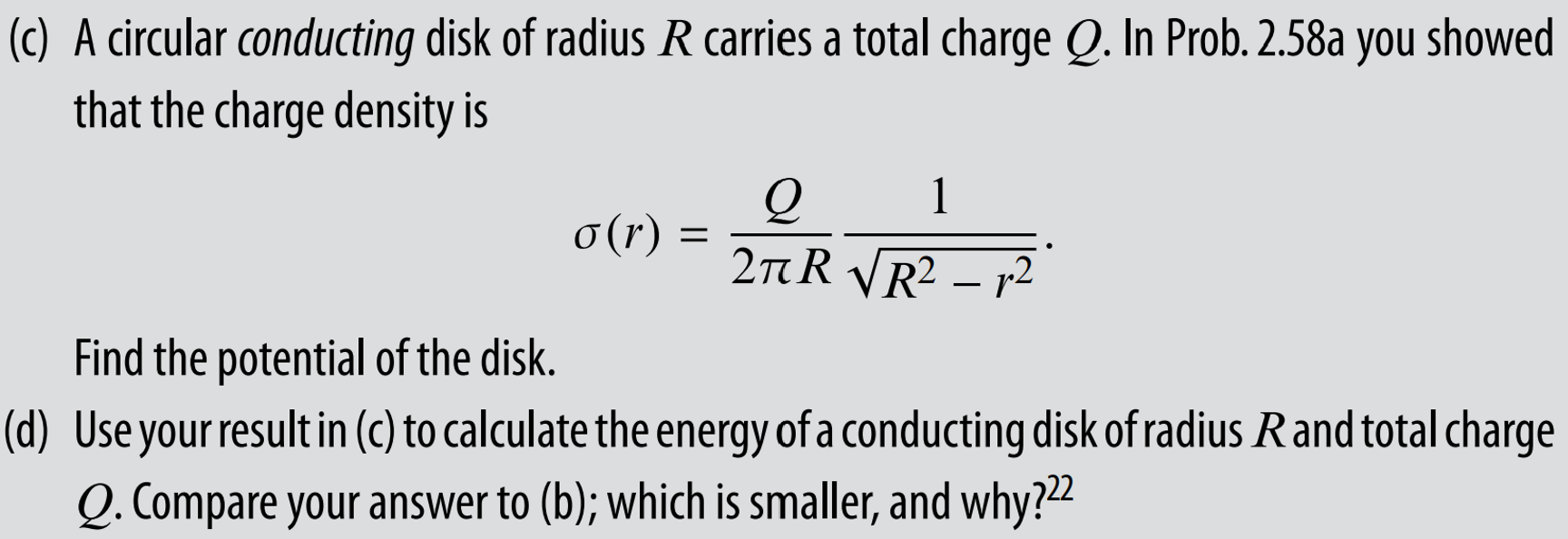Home /
Expert Answers /
Physics /
c-a-circular-conducting-disk-of-radius-r-carries-a-total-charge-q-in-prob-2-58a-you-showed-that-pa333
(Solved): (c) A circular conducting disk of radius R carries a total charge Q. In Prob. 2.58a you showed that ...
(c) A circular conducting disk of radius
Rcarries a total charge
Q. In Prob. 2.58a you showed that the charge density is
\sigma (r)=(Q)/(2\pi R)(1)/(\sqrt(R^(2)-r^(2))).Find the potential of the disk. (d) Use your result in (c) to calculate the energy of a conducting disk of radius
Rand total charge
Q. Compare your answer to (b); which is smaller, and why??2
